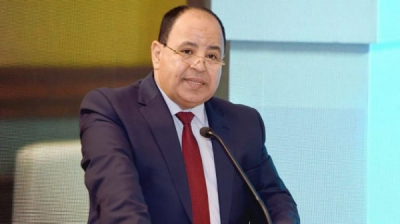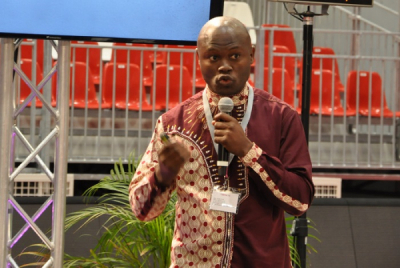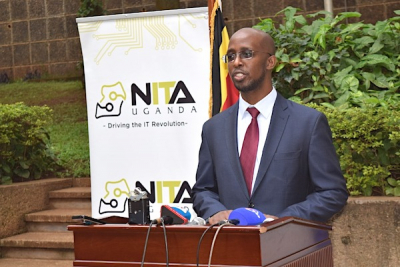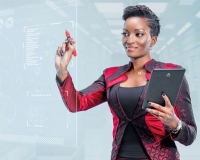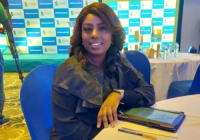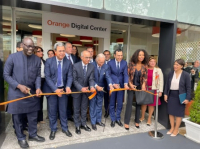The LOGIRAD is DRC’s new integrated public finance management system. It was adopted last Friday, March 25th, in Kinshasa, during the council of ministers.
The new digital system is aimed at making the collection of taxes, duties, and fees more secure for the central government. Additionally, LOGIRAD will help the government optimize domestic revenue mobilization, knowingly by helping it better manage administrative and legal disputes, protect the tax collection circuit, limit human intervention and tackle fraud.
Per Article 3 of the tax law No. 13/003 of February 23, 2013, amended and supplemented by Article 47 of the 2022 finance law, the Democratic Republic of Congo will issue a statutory law, making LOGIRAD the compulsory platform for tax and non-tax procedures.
In the country’s 2022-2024 medium-term budgetary framework presented in September 2021, the Ministry of Finance makes LOGIRAD a key asset in the public revenues’ protection arsenal. The digital system is expected to heavily contribute to the collection of additional revenues for the implementation of essential socio-economic development projects.
According to DRC’s medium-term budgetary framework, provincial governments’ overall expenditure budget over 2022-2024 amounts to some FC89,999.8 billion (US$44.7 billion) against FC74,797.8 billion for the central government.
Muriel Edjo
Burundi validated last March 17 the final plan of its digital tax collection project. The plan was validated by provincial governors, council tax officers, and communal administrators during a workshop organized by the Ministry of Home Affairs and the United Nations Development Program (UNDP).
The final plan provides for the adjustment of the legal framework, identification and allocation of identification numbers to every taxpayer, and the acquisition and deployment of IT equipment. It also plans for the connection of every municipality to the national power and internet network as well as training for the communal staff that will be in charge of daily communal revenue collection. The plan’s pilot phase will be launched next July in sixty townships.
For Niteretse Martin (photo), permanent secretary of the Ministry of Home Affairs, the collection of communal tax revenues is being digitized to improve efficiency, boost transparency and improve the relationship between the public administration and citizens by offering efficient services to users.
The March 17 workshop is the ultimate result of instructions issued by President Evariste Ndayishimiye at the end of the January 4-5, 2022, government retreat. After the retreat, on January 27, another workshop was organized to validate the diagnostic assessment of communal tax collection in the country. The digitalization of communal tax collection is perceived as a solution to poor communal management. The latter translates into financial losses for the government. However, the authorities expect digitalization to guarantee good governance and steady communal tax incomes.
Ruben Tchounyabe
Egypt’s Ministry of Finance, on March 9, commissioned German software provider SAP and US tech firm IBM Consulting to install a digital platform for the country’s tax procedures. This move aims to improve tax procedures and optimize revenue collection.
The two contractors will roll out an integrated solution based on the SAP® Tax and Revenue Management for Public Sector. Designed to provide the Ministry of Finance with comprehensive business automation tools, the platform will help the Ministry streamline and automate its processes, enhance collaboration and improve citizen experience. The system was successfully tested in 10 tax offices in Greater Cairo but this year, it will be rolled out in every region.
Under the terms of the contract binding the three parties, IBM will also install IBM Cloud Pak for Business Automation solution, a tool designed to integrate artificial intelligence (AI) into the ministry of finance’s processes. It will streamline and automate the tax procedure, ensuring accurate tax declarations, offering taxpayers more knowledge of the taxation process while allowing tax authorities to focus on high-value tasks like reducing tax evasion and improving revenues.
The project is part of the Egypt Vision 2030 development strategy launched in 2016. One of the main focuses of that strategy is the modernization of public services.
Meanwhile, the digitization of the tax system is part of the unified tax procedure law aimed at maximizing government revenues. On February 22, Ragab Mahrous, spokesperson for the Ministry of Finance, explained that taxes account for 75% of the Egyptian government’s revenues. Therefore, it is crucial for the country, which has several development projects, to optimize tax collection.
Adoni Conrad Quenum
Clinic Agro has helped analyze thousands of hectares of cultivable lands in several African countries. The ambition of its developer, Pyrrus Koudjou, is to improve food security and help lift farmers out of poverty.
Pyrrus Koudjou (photo)’s plant clinic, ClinicAgro, recently launched a fundraising campaign to expand its operations. The agricultural startup created in 2019 is the result of a discussion between its creator and a farmer. During that discussion, Pyrrus Koudjou discovered the various problems facing the agricultural sector. Realizing that the problems are almost the same everywhere, he decided to find a solution to provide farmers with vital information needed for the success of their activities.
"Africa […] and Cameroon in particular, need stable food supplies because the population is growing exponentially. In that context, we must help farmers optimize their production and space utilization, reduce their ecological footprint and preserve natural resources for future generations," explains the social entrepreneur and computer scientist.
Connected to a mobile app through Bluetooth, the ClinicAgro kit offers advanced diagnostics of soils and diseases that can affect plants. Within 60 seconds, it can provide various indicators like fertilization rate, nitrogen, phosphorus, and potassium level or the nutrient index.
Based on the result of the analysis, ClinicAgro will provide recommendations to improve the soil, its yields, and ultimately the farmer’s income. Users can also submit pictures of diseased plants for an artificial intelligence algorithm to identify the disease affecting that plant and appropriate solutions.
Available in 6 languages, ClinicAgro is a decision-making tool essential for farmers. The eponymous start-up was officially launched in February 2021. To date, ClinicAgro has manufactured 12 kits, which have been deployed in several countries, including Cameroon, Burkina Faso, Togo, and France. Some 1,200 hectares of land have been analyzed using the technological solution.
"What motivates me every day is my target audience: farmers. My goal is to find solutions to help them achieve optimal yields,” says Pyrrus Koudjou, whose target is to help analyze 1.8 million hectares of cultivable lands in Cameroon.
Pyrrus Koudjou is a tech enthusiast. He has developed several solutions based on artificial intelligence. Thanks to ClinicAgro, he received numerous awards including the Coup de Cœur awards during Med’Innovant Africa 2019, the grand prize of Antic 2019, and Cultivez le Numérique Morocco as well as the main prize of Espoir Afric Startup Summit 2019 in Paris. In 2019, as the top winner of Orange Social Entrepreneur, Pyrrus Koudjou joined the acceleration program offered at Orange digital center Douala. Thanks to the mentorship program, he was able to develop the prototype and the commercial version of ClinicAgro.
Ruben Tchounyabe
Uganda started digitizing its public services more than 10 years ago. Subsequent achievements confirm the soundness of the decision that the Ugandan government took much earlier than most African countries.
Uganda saved an average of USh4 trillion (US$1.1 billion) yearly over the last ten years thanks to digitization. The figure was disclosed by Hatwib Mugasa, executive director of the country’s information technology authority NITA-U, in Kampala last Wednesday, March 23, during the Huawei ICT Congress 2022.
“This cost would have been spent on paper, manual processes, and data centers’ service fees for each ministry, department, and agency,” the government official explained. As part of its digitization project, the government has “rolled out over 4172km of backbone fiber cable in over 62 Districts of Uganda,” he added. It also includes “rolling out last-mile fiber cable to extend connectivity to the grass-root user all the way to the Parish.”
“In a few weeks from now we shall have completed 764km under the Last Mile Phase and citizens shall be able to access e-government services at 1,400 administrative locations,” he concluded.
The financial gains aside, digitization also helped save time for citizens who can now pay their taxes, request passports, and register a business online, Hatwib Mugasa indicated.
Uganda is currently one of the African countries with the highest e-government readiness score. In its latest "E-government development index 2020", the International Telecommunication Union ranked the country 18th out of 54 on the continent. The country's score of 0.4499 out of 1 is above the East African (0.3738) and African (0.3914) average. In 2010, its e-government development score was 0.2812.
Adoni Conrad Quenum
The last two years have demonstrated to officials in Madagascar how important transforming the economy is. As a result, the country started digitizing several strategic sectors for more efficiency.
On 22 March 2022, the Malagasy Ministry of Agriculture and Livestock (MINAE) signed a partnership agreement with the UN Food and Agriculture Organization (FAO) to digitize the country’s agri-food systems.
As part of this agreement, digital platforms will be developed to make agricultural services more accessible, interactive, and efficient for the whole agricultural value chain. The platforms will take advantage of available opportunities and tackle challenges the sector may face in the future.
According to the MINAE, the partnership also includes support for "digital innovation” and it will focus on improving efficiency of coaching, training, intermediation, and partnerships. It will also entail “the publication of crucial information” related to trade, health, and regulations.
Ultimately, the ministry believes, the agreement will "accelerate the positive transformation of food systems and make them more sustainable, resilient and inclusive.”
The said agreement is one of the numerous actions carried out by the Malagasy government to improve the efficiency of its agriculture sector. Last year, the MINAE, the Ministry of Digital Development, and technical/financial partners announced the implementation of a geo-referencing system to collect and manage data on farmers, their operating segments, and the various supports received from the government. As part of this initiative, digital farmer identification cards were distributed in November 2021.
Ruben Tchounyabe
Fatim Cissé (photo) is the founder of IT firm Dux and CEO of IHS Towers Côte d'Ivoire. She is also the first Ivorian woman to get an artificial intelligence degree.
After completing secondary school in Côte d'Ivoire, she traveled to Canada for a Master’s in Human resources management at HEC Montreal in 2010. Six years later, she obtained a degree in management from Harvard Business School. In 2019, she made history by becoming the first Ivorian woman to graduate from Singularity University’s Executive Program in artificial intelligence. Her professional career began in 2005 with big foreign firms like Hewitt & Associates, Quintiles, and Centennial Marketing Group.
In 2011, she returned to her home country where she took over the human resources division of Ericsson Côte d'Ivoire. Driven by the desire to contribute to the development of Côte d’Ivoire, she founded Dux, an IT firm, in 2018. Her company makes it easier for African businesses to access digital services, in addition to offering AI, cybersecurity, big data, and data science courses. She also designs customized courses for companies.
Besides her entrepreneurial ventures, she also pursues a career in telecoms. In 2020, she was appointed CEO of IHS Towers Côte d'Ivoire, a multinational telecom infrastructure company. In 2019, she was made a Knight of the National Order of Côte d'Ivoire. In 2019 and 2020, she was included in the first two editions of Who's Who Côte d'Ivoire, a book aimed at highlighting the country’s best talents.
In line with her goal to "prepare African organizations for the 4th industrial revolution," she builds strong trust-based partnerships with her clients, guaranteeing the security, reliability, and efficiency of the technological solutions she offers.
"We have a clear vision of what we want to be: a leader in artificial intelligence on our continent, through the development of tailored applications, training, and consulting. Our progressive thinking combined with our deep understanding of local realities and our pragmatic and creative approach set us apart from our competitors," she says.
Aïsha Moyouzame
Developed in 2019, Smart Bra has the potential to save the lives of millions of women across Africa. Kemisola Bolarinwa, the young Nigerian who developed the app, wants to spare other families the sad experience she had.
Nigerian tech firm Nextwear Technology is set to release a smart bra in July 2022. Developed by robotics engineer Kemisola Bolarinwa (photo), the smart bra is aimed at helping fight breast cancer by improving early diagnosis. The bra is equipped with small, battery-powered ultrasound sensors. It scans the user’s breasts, synchronizes the result with a mobile app, and sends the data to a doctor for interpretation.
Dubbed “Smart Bra,” the technological tool is the result of four years of research. It’s an idea that Bolarinwa came up with, in 2017, after her mother passed from breast cancer, at the University College Hospital in Ibadan. The young engineer believes the tragedy could have been prevented if the cancer was diagnosed earlier.
"In her ward at the hospital, I saw women of different age groups, even teenagers, groaning in the pain of breast cancer," she said.
“The smart bra must be worn on the breasts for a maximum of 30 minutes for the result to show,” she explains. For the robotics engineer, women can screen for breast cancer from the comfort of their homes. The technology can also be used by health centers–which lack the funds needed to acquire radiology and mammography equipment–or by poor communities.
“We have conducted a local trial and got about 70 percent accuracy. We are working towards 95-97 percent accuracy,” Kemisola Bolarinwa informs.
With 129,000 new cases diagnosed in 2020, the World Health Organization (WHO) estimates that breast cancer is currently the most common type of cancer among women in sub-Saharan Africa. In the region, less than 50% of the affected survive five years after they are diagnosed, according to the WHO.
Ruben Tchounyabe
Mauritius-based African Network Information Centre (AFRINIC), an IP address management institution, intends to contribute to the development of the digital industry in Africa by helping deal with the challenges faced in this sector. This year, Eddy Kayihura, AFRINIC CEO, has launched an extensive mobilization program that will be carried out in about twenty countries.
Eddy Kayihura (photo), CEO of the African Network Information Centre, recently embarked on an African tour in his bid to reach his 2022 goal of contributing to the development of the digital industry. The tour is aimed at mobilizing AFRINIC member countries around a common goal, which is to join forces for secure and stable internet services in Africa. In its framework, AFRINIC representatives will visit about twenty countries, including Côte d’Ivoire and Benin that have already been visited by the representatives.
For Eddy Kayihura, this tour is an opportunity to improve the services offered by AFRINIC by notably establishing a presence in the various member countries. That way, the center can understand member countries’ specificities as well as discuss their goals and challenges to make sure the center is aligning its services with ground realities.
"To offer improved services, we have to get closer to [member countries], listen to their problems, and present new products. Our members include Internet service providers, governments, and digital stakeholders. We will meet them, discuss current issues and explore ways to better serve them,” he explained.
The mobilization program is also expected to bring in new members. With the development of the digital industry, cybercrimes are ever-present threats. To this end, Eddy Kayihura reveals, AFRINIC has created new technologies to face those threats. One of the new technologies created is the Internet Protocol version 6 (IPV6), the new version of IP addressing, which is the foundation of network connectivity and the internet. According to the CEO, member countries are lagging in the adoption of that new version. So, during the tour, AFRINIC will also discuss with members to find the best approaches to facilitate that adoption.
AFRINIC is a non-profit organization that manages Africa's IP addresses. It provides blocks of IP addresses and allows its members to establish their own digital identity, certifying the origin of their internet traffic. Since 2004, the institution has served some 2,000 members in Africa. Eddy Kayihura plans to add 900 more members.
The CEO, who has over 20 years of experience in the IT sector holds a B.S. in IT from the University of Rwanda and an MBA in international business from Oklahoma Christian University. He worked for the Bank of Kigali in Rwanda, where he contributed to the initial stages of the bank’s digital transformation. He also held a management position at Broadband System Corporation, an internet service provider in Rwanda. In November 2019, he joined AFRINIC, with a mission to contribute to the success of the institution’s digital strategy.
Aïsha Moyouzame
Orange S.A. is gradually implementing its digital skills development strategy in Africa. Initiated in 2019, the strategy has already benefited millions of people on the continent.
Orange S.A. inaugurated one of its Orange Digital Centers (ODC), in Rabat, Morocco, yesterday, March 23.
The center is the result of a partnership between Orange Morocco and the German Agency for International Development Cooperation (GIZ). It hosts four strategic programs: a coding school, a digital fabrication program (FabLab Solidaire), a start-up accelerator (Orange Fab), and Orange Ventures, Orange group’s investment fund.
Young Moroccans with tech business ideas and innovative projects or those willing to acquire digital skills can access coaching and mentoring resources at the center.
Alioune Ndiaye, CEO of Orange Middle East and Africa, says ODC Rabat further enhances the network of 32 Orange Digital Centers the group plans to build in all the African and Middle Eastern countries where it operates, but also in Europe.
“This project is a key step in our social responsibility plan to promote digital inclusion, for young people and women notably,” adds Elizabeth Tchoungui, Executive Director CSR, Diversity and Philanthropy, and Deputy Chair for the Orange Foundation.
In the framework of its strategic plan Engage 2025, which focuses on developing connectivity, energy, education, and financial inclusion, Orange is committed to deploying an ODC in each African country where it operates by 2025. Besides Rabat, the group has inaugurated ODCs in Tunisia, Senegal, Ethiopia, Cameroon, Ivory Coast, Madagascar, Mali, and Egypt. It also plans to inaugurate more ODCs this year.
According to Hendrik Kasteel, CEO of Orange Morocco, to impact Moroccan society more, Orange will complement its ODC Rabat investment with support to higher education institutes in the country. To this end, several “ODC Clubs” are expected in the country, starting with Hassan II University in Casablanca.
Muriel Edjo
More...
Africa’s digital transformation comes with threats of escalating cyber attacks. It is therefore crucial for the continent to take appropriate measures to protect itself from such attacks.
Togo is currently hosting an international cybersecurity summit. Started on March 23, the summit -the first of its kind in Africa- was organized by the Togolese government and the United Nations Economic Commission for Africa (UNECA).
According to the organizers, the event aims “to initiate high-level dialogue on avenues of cooperation and coordination to address the pressing challenges and issues of cybersecurity.” Above all, it will serve as a medium to “boost cooperation and agree on a cybersecurity strategy for Africa.”
Nearly 600 participants are attending the summit, including officials from a dozen countries, experts, private sector leaders, and civil society actors.
"The issue that brings us together today is one of the major challenges of our time. Africa must be ready for it and even play an active part [in the fight against cyberattacks],” said Faure Gnassingbé (photo), President of Togo, in his opening speech.
After this speech, the Head of State received the symbolic award of UNECA Champion for Cybersecurity in Africa for his commitment to cybersecurity.
“Africa offers economic opportunities in virtually every sector. The digital economy is a key asset to unlocking these opportunities. (...) Also, cybersecurity is an important pillar for any digital transformation,” said UNECA Executive Secretary, Vera Songwe.
Alarming figures
For the UNECA, the cybersecurity summit -whose organization was postponed in 2021 due to the coronavirus pandemic- is necessary given the numerous challenges the continent will have to face. As the Addis Ababa-based institution explains, even if Africa has been quick to jump onto the 4th industrial revolution’s bandwagon, it is increasingly faced with cyber governance and cyber security issues.
Over the past two years, cybercrime incidents have escalated in Africa. In June 2020, South Africa became the third country in the world with the highest number of cybercrime victims. The same month, the Ethiopian Information Network Security Agency (INSA) announced that it thwarted a major attack. Also, in the first half of 2021, South Africa, Kenya and Nigeria recorded about 80 million cyber-attacks.
Meanwhile, “more than 90% of African firms operate without adequate cybersecurity procedures,” the UNECA reminds.
Octave A. Bruce
World-leading tech firms’ interest in Nigeria has been growing since 2020. One of those firms is Microsoft. The group has made several commitments to the government. The Africa Development Center is the fulfillment of one of those commitments.
Microsoft's first Africa Development Center (ADC) was officially launched last Monday, March 21, in Lagos. Located at the Kings Tower in Ikoyi, it is Microsoft's 7th ADC worldwide. The about US$100 million infrastructure is dedicated to the development of technology and engineering solutions that will have “local and global impact.” In that regard, it will help build a continental “talent pipeline” and boost innovation in various strategic areas. Also, it will provide employment opportunities to millions of young people.
“The ADC is a place for world-class engineers to create products and services that would power the future global economy,” commented Joy Chik, Corporate Vice President, Identity at Microsoft. She also revealed that the ADC had already surpassed the target of 500 engineers it was planning to hire, by 2023, in the identity, Mixed Reality, Microsoft 365 services as well as data services divisions.
The Africa Development Center is one of many digital investments Microsoft has made in Nigeria since 2020. It "is in line with the federal government's digital economy project," said Ali Isa Pantami, Nigeria's Minister of Communications and Digital Economy, commending the fulfillment of that promise.
In May 2021, Microsoft ha promised to support the rise of the digital economy in Nigeria through the development of connectivity, youth training, and transformation of the public administration.
Today, March 24, Microsoft will inaugurate ADC Nairobi, Kenya. Like Nigeria, the country is one of the major digital hubs that Microsoft wants to capitalize on to boost its influence on the continent.
Adoni Conrad Quenum
The mobile app bets on its community to motivate users. Unlike other apps that are sort of gym directories, Welnes can turn any place into a gym.
In 2020, Egyptian startup Welnes launched an eponymous social media app for a virtual group workout. After registering, users can access the various services offered by the platform, share their experience, meet other users online, take part in fitness challenges–routines carried out over a set period with a fixed goal–prepared by coaches. They can also discuss with nutritionists to define personalized workout programs, share appropriate cooking recipes and images of the foods they cooked.
Amr Saleh (photo, left) and Amr Diab, respectively Welnes CEO and founder, explained that the social media app was developed to push many young workers, who are too busy in the daytime and not motivated to go to the gym, to work out right from their homes.
They expect group effects to boost users’ involvement. As per their figures, the app is currently used by over 15,000 subscribers who have already shared more than 500,000 pictures of foods they cooked.
According to the CEO, most users register on Welnes because of the nutrition and workout regimens but they stay because of the community.
In January 2022, the mobile fitness app started developing its human resources. It plans to expand in the North African sub-region by 2023, thanks to the US$300,000 seed capital it raised from investors like Samurai Incubate, and UI Investments under the leadership of Flat6labs.
Ruben Tchounyabe
Thanks to a passion born after an unfortunate accident, Nathan Nwachuku is now one of the leading innovators with much room for growth. Through Klas, the start-up he co-founded, he wants to allow everyone to learn and share their knowledge.
Give everyone a chance to share their valuable knowledge and earn an income by doing so. This is the goal of 18-year-old Nigerian Nathan Nwachuku (photo) through Klas, the start-up he launched in December 2021. Specifically, his mission is to unleash the power of knowledge-sharing through technology.
He recently raised US$130,000 from a group of investors including Voltron Capital, Cabal Fund, Velocity Digital, HoaQ, Tola Adesanmi of Spleet, Odunayo Eweniyi of PiggyVest or Nadayar Enegesi of Eden Life to boost the capacities of his e-learning platform.
Through the platform, anyone can create an online school and offer live lessons. The platform integrates course planning, community management, video conferencing, and payment features. On Klas, creators can teach a variety of subjects, including coding, design, cryptography, business, and languages.
Nathan Nwachuku came up with the idea for Klas while recovering from an accident that occurred on his 15th birthday, leaving him without his right eye. During his five-month recovery, the young Nigerian started teaching physics online. Upon discovering the potential of online teaching, he decided to fully devote himself to it.
After his JAMB, he declined university admissions to devote himself to his project. He later met Lekan Adejumo on a matchmaking site. The latter later became Klas’s co-founder.
The startup claims to have already collaborated with numerous firms worldwide with over 2,000 creators still on its waitlist.
Ruben Tchounyabe




